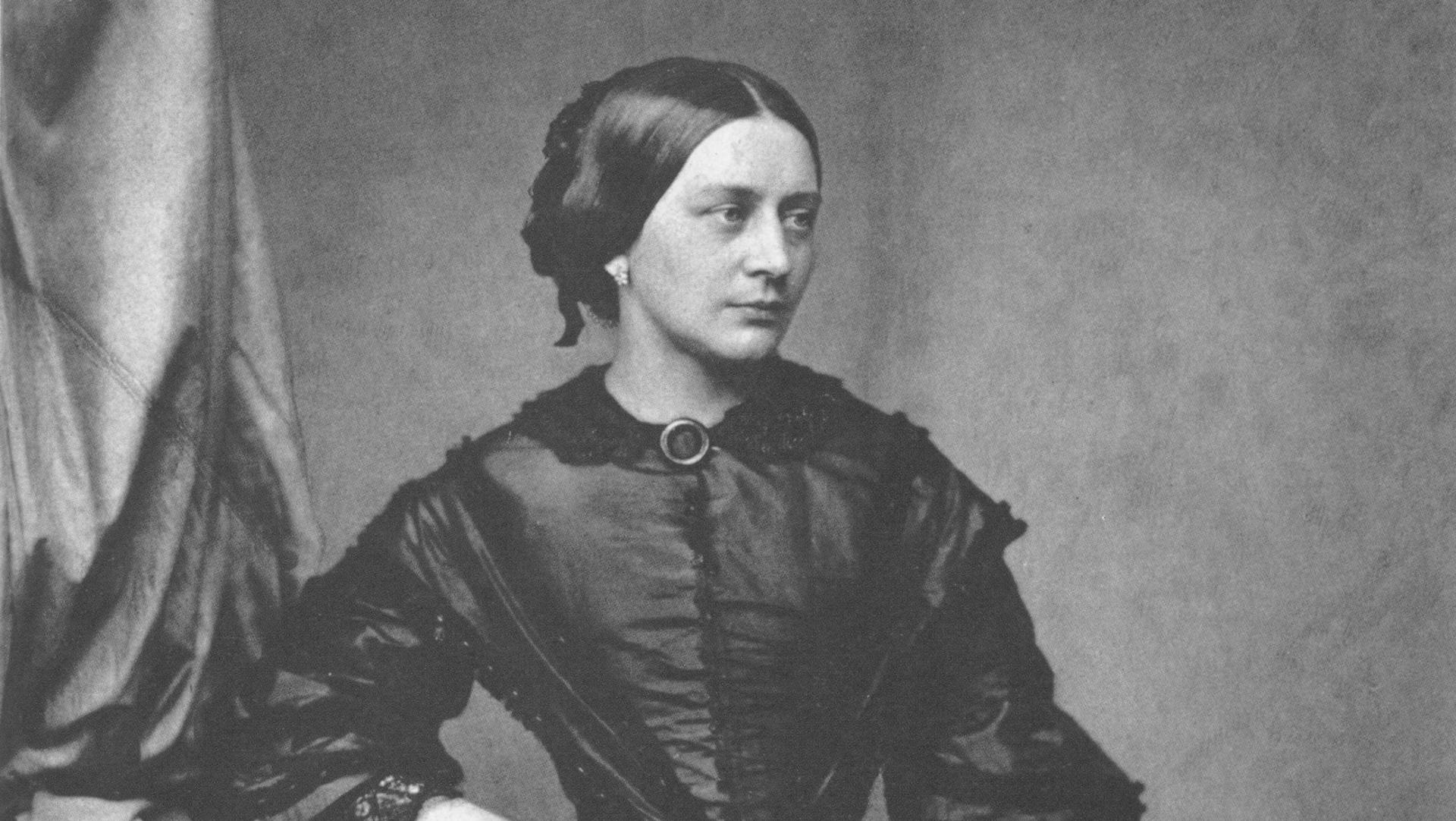Composer and pianist Clara Schumann achieves a modern milestone
The 19th-century pianist and composer Clara Schumann is shown here.
In 1972, the Beaux Arts Trio, one of the most celebrated chamber music groups in America, recorded pianist and composer Clara Schumann's only piano trio along with three piano trios by her husband, Robert Schumann. Now, that recording showcasing both of the Schumanns has been inducted into the National Recording Registry at the Library of Congress.
Robert and Clara were classical music's original “power couple.” Robert was one of the leading composers of the 19th century; Clara was a piano superstar who toured all over Europe, playing, among other things, her husband's music.
Clara was also a composer herself, but she is not as well-known for that side of her artistic life. She was only in her 30s when Robert died, and after that, she pretty much stopped writing music.
Her husband, “at the time of his death, was already regarded as a musical revolutionary,” says John Tibbetts, an associate professor of film and media studies at the University of Kansas. “Clara Schumann, at that point, had become his chief interpreter, as well as a formidable virtuoso pianist. … Her work with Robert, both as an interpreter and as an inspirer of his music, carried forward an awful lot of piano music by her husband and by many others of the day.”
“What Clara had was a hugely ambitious piano teacher [as a] father, who created a prodigy, and as part of that she would be expected to perform her own music,” explains Anna Beer, the author of "Sounds and Sweet Airs: The Forgotten Women of Classical Music." “She helped establish the German tradition of Bach and Beethoven, and she wanted to make sure her husband, Robert Schumann, was part of that tradition. So, one of the great ironies of Clara Schumann's life is that she helped create a tradition that would exclude her.”
Clara wrote her piano trio in the summer of 1846. She had just moved from Leipzig to Dresden, in part because Robert had suffered the first serious mental breakdown of their married life.
“She had three young children and was pregnant with her fourth child, who would be born only 11 months after [the previous] baby's birth,” Beer explains. “The poor thing suffers a miscarriage — and she writes this piano trio in the midst of all that.”
“Clara’s piano trio is very beautiful and her piano part is exciting. It's difficult,” says Menahem Pressler, a pianist and one of the founding members of the Beaux Arts Trio. Pressler says he and his fellow performers loved the music of both Robert and Clara, and “played it with great, great passion.”
John Tibbetts agrees. “These 1972 recordings, I think, are unparalleled in their success in performance,” he says.
Anna Beer, the author, says it was hard to write about Clara and Robert as a creative couple. “[Looking] at the letters and the diaries and the archives, you simply see it as attritional,” she explains. “You see, every single week, the diminishing of Clara Schumann as a creative person, and a sort of subtle kind of oppression going on, domestically and beyond the home.”
“The marriage began with great ideals on on both sides — that they would both be composers together,” Beer continues. “But you try having two pianos in the same house. You try having a child every year and still keeping two careers going. We’re still not doing it very well in the 21st century. It's not surprising it didn't work in Leipzig in the early 19th century.”
Clara “believed the stories we tell ourselves about the capabilities of men and women,” Beer says. “She said, ‘Women are born to be interpreters, not creators.’”
“And yet, in other areas of life, Clara Schumann was very happy to break all the taboos of her society,” Beer continues. “She certainly left her kids at home. She certainly didn't look after them. She went on grueling tours all over Europe, including during the entire time her husband, Robert, was in the mental asylum, but also in the months immediately after his death …[She] was utterly committed to that.”
“And so we have a young woman's music; we have a performer's music. It is glorious. But one does wonder what she might have moved onto if circumstances had been different.”
This article is based on a story that aired on PRI’s Studio 360 with Kurt Andersen.
